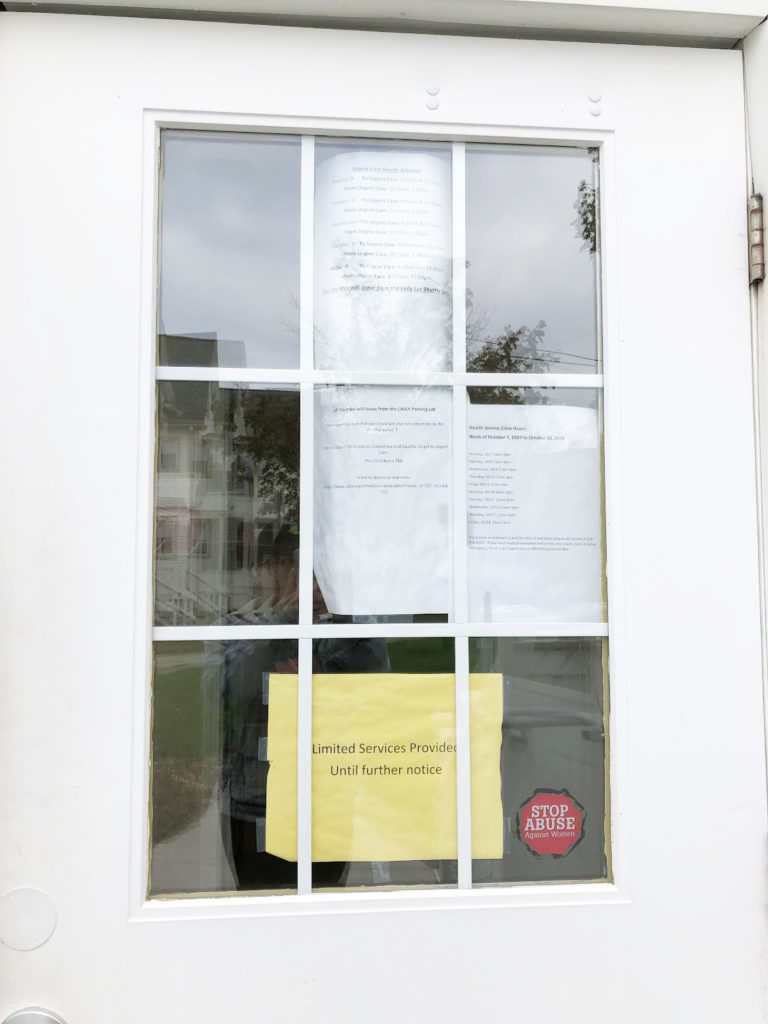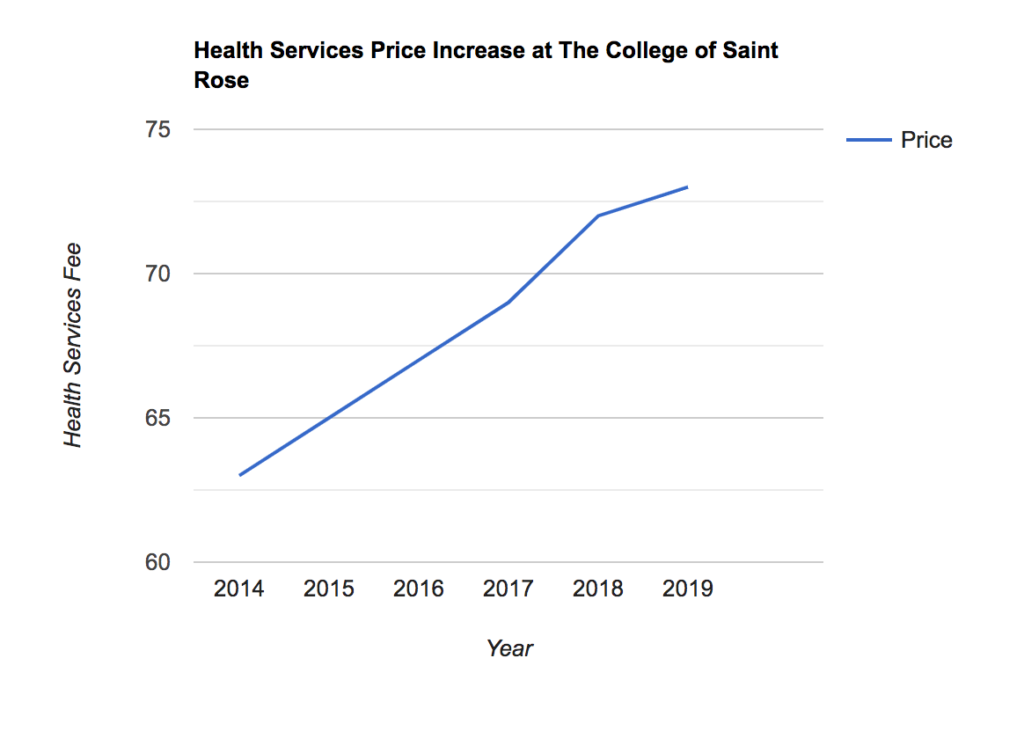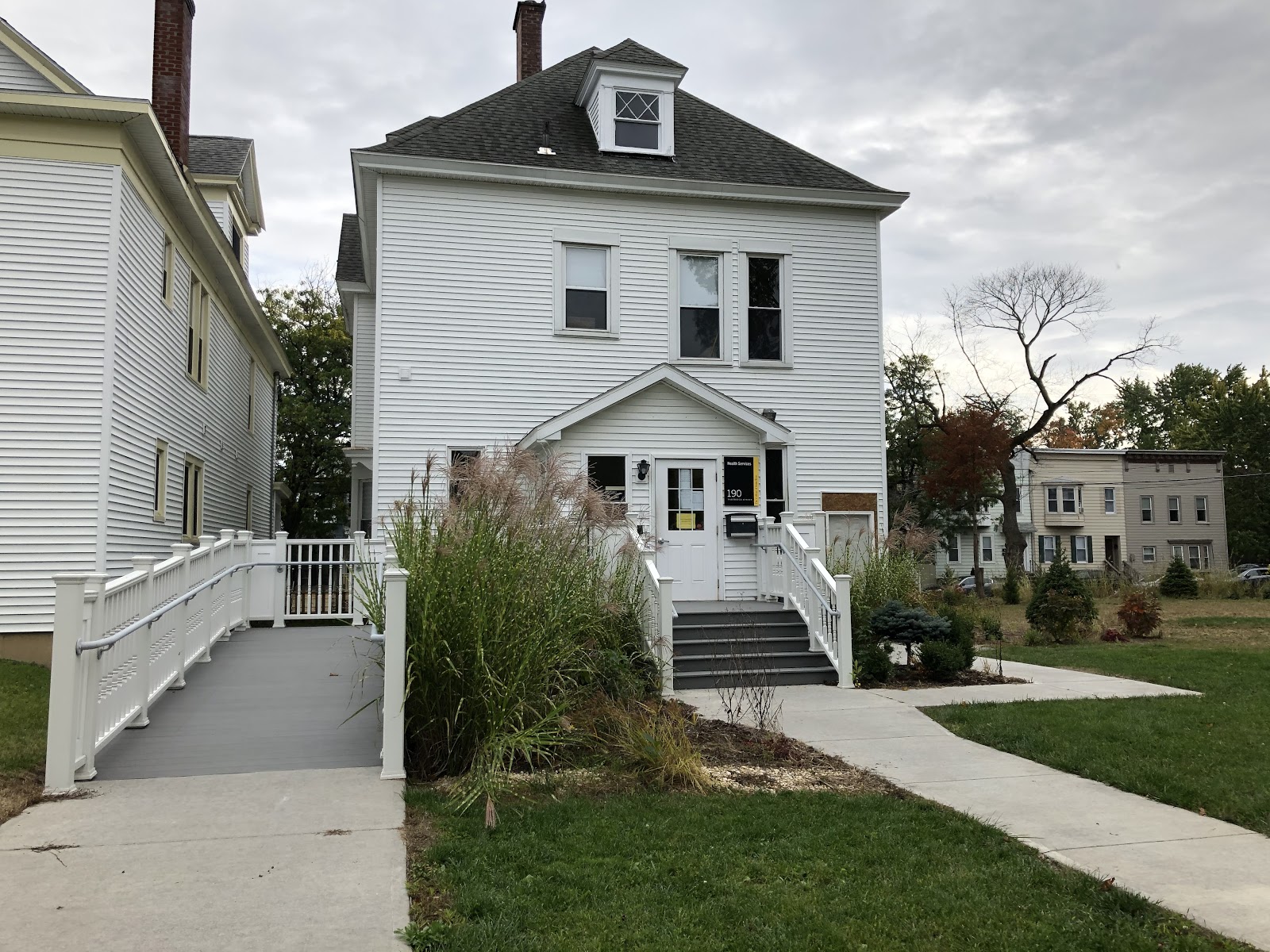By JOURNALISM II
The Health Services Office at The College of Saint Rose claims to offer students connection with a coordinator, a licensed practical nurse, a nurse practitioner, and a weekly visiting physician for an annual fee that is assessed to both commuter and residential students. The fee has increased slightly every year over the last five years.
Services for students have recently been limited; many students are referred to local urgent cares to diagnose and treat their medical issues. Students are not receiving the services and testing that they have come to expect on campus.
Copays for off-campus health care visits can be expensive for students to cover unexpectedly, and only certain insurances are accepted at these emergent locations in the Capital Region; although offices that students frequently visit are not far away from the Saint Rose campus.
Allison Hansen, president of Student Association said at the Oct. 23 SA meeting that to compensate for these limited services, there will be an escort service to local urgent care facilities provided by Security. According to Jennifer Gish, the college’s director of marketing and communications, this service will be periodically provided by the school’s van drivers instead.
The shuttle will be leaving for urgent care from the college on Mondays and Wednesdays at 9:05 and 11:50 a.m., Tuesdays and Thursdays at 9:45 and 10:10 a.m., and Fridays at 9:10 and 11:50 a.m. The shuttle returns to campus from urgent care Mondays and Wednesdays at 11:55 a.m. and 1:40 p.m., Tuesdays and Thursdays at 10:15 a.m. and 1:40 p.m., and Fridays at 11:55 a.m. and 12:50 p.m. It is important to note that this schedule will only be adhered to if there is a driver available to facilitate the shuttling.
The college currently refers students to urgent care for a spectrum of treatments, some of which students say should be taken care of at the Health Services office.
“When I walked in I was told they’re not doing tests right now and just gave me a paper with a list of urgent cares to go to,” said sophomore Saga Stranden, who visited Health Services last month.
Stranden had sought out a routine procedure that Health Services has previously offered to students. However, after being turned away from the office, she wound up traveling for more than 30 minutes and paid a $15 copay at St. Peter’s Urgent Care for a test that could have been covered under her $73 student fee. Stranden has insurance through local provider Capital District Physicians Health Plan.
Stranden’s copay, albeit negligible, is an added expense, and other students are often paying higher copays or are getting billed for the entire cost an off-campus; many students are not fortunate enough to have a copay as low as $15. Members of the student body are covered by a wide range of insurances: some students have no copays, while others might have copays that can range from free, to a nominal $5, to the full bill for those who are uninsured. Additionally, students who may be unable to afford insurance or find coverage in the Capital Region may be subjected to medical bills that can put students and families on the hook for hundreds or even thousands of dollars.
“I ended up on a wild goose chase trying to find somewhere to get it done,” said Stranden. “Instead of getting it done on campus, I literally spent my whole day at [Planned Parenthood] and Urgent Care.”
Another Saint Rose student, senior Lauren Billington, recently visited Health Services and decidedly looked elsewhere after her diagnosis.
“I went to health services to get treatment for poison ivy, and ended up having to drive to the nearest Urgent Care because it wasn’t helpful and I felt like I would get better service somewhere else,” said Billington.
Another student Emily Cruz, who visited Health Services on Oct. 3, was dissatisfied with her experience.
“I ended up waiting at one point for an hour to see the doctor after a nurse came in to…see what was wrong,” said Cruz, a junior communications student at the College. “And then she kind of gave me a diagnosis…that didn’t really make sense at all.”
She said that she felt as if the nurse and doctor did not spend enough time examining her condition, and as a result of what she thought was an unusual diagnosis, Cruz went to a clinic in Albany to get a second opinion.
“Why should I have to go out of my way to see somebody else if I am already paying for the services, and I go there and they just kind of give me a half done job then I have to go someplace else, spend more time, spend more money when I already spent time and money,” said Cruz.
At the State University at Albany, students make appointments with the Student Health Services one of two ways, they either use their website or call in order to make an appointment.
The Health Services offices at UAlbany serve 13,590 students and are staffed with employees who hold positions as administrative staff, nurses, pharmacists, advanced practice providers, and physicians; all licensed in their respective professions, according to Kelsey Butz, a communications specialist at UAlbany.
With the staff of 20 people who work at the University’s Student Health Center, they record between 10,000 to 12,000 appointments per year from the 13,590 students enrolled in Fall 2018. These visits typically are for issues such as colds, coughs, sore throats, flu, skin issues, musculoskeletal issues, headaches, eye complaints, gynecology visits, sexual health visits including STI testing, travel health consultations, and immunizations.
At Siena College, which is only four miles away from Saint Rose, students may call in or walk in to Health Services during open clinic hours. Students then will speak with the triage registered nurse to discuss their symptoms and receive advice, referral, appointment with the clinic RN, NP, or MD consultant, all of these positions are full time and all year around.
“Health Service is a free service to students,” said Carrie Hogan, Siena’s director of health services. “There is no cost to come to health services and Health Service does not bill insurance companies,” said Hogan.
In addition to the free health services there, Siena’s health services office is also affiliated with St. Peter’s Health Partners Medical Associates and will help students with referrals to specialty services within the SPHP network including Urgent Care.
According to Gish, the college intends to view mental health and physical well-being more holistically. They hope to have a new director when they are able to identify someone who can provide both areas, with leadership and ability to meet the needs of students overall wellness. The new director, “…will lead the merger and restructure of what was previously two areas and will help to assess staffing needs,” said Gish in an email.
Essentially, the college had separate directors for health services and the counseling center. There is now a new position, the Director of Counseling and Health Services.
The New York State Department of Health does not require colleges or universities to be licensed under Article 28, which is what regulates facilities such as hospitals, hospital extension clinics, and diagnostic and treatment centers.
“Because the College of Saint Rose performs laboratory testing using tests designated as ‘waived’ by the Food and Drug Administration, they are registered with the Department as a limited service laboratory,” wrote Jill Montag, a public information officer for the New York State Department of Health, in an email. “These types of labs are not routinely inspected, but may be if we receive a complaint. There are no records of complaints at St. Rose.”
Staff at the Saint Rose health center include a coordinator, nurse practitioner, and a licensed practical nurse. The center also has a collaborating physician who is on campus one day each week.
This semester, collaborating physician Dr. Vincent Zeccola, is on campus Thursday afternoon for two hours. Zeccola is also a collaborating physician at Union College in Schenectady, according to Jamie Ipsen, a receptionist at the Wicker Wellness Center.
The nurse practitioner is available when Zeccola is not, and is able to consult him over the phone in more complicated diagnostic cases. If a condition is diagnosed as not severe, the student might be asked to return during Zeccola’s scheduled office hours.
Nonetheless, the college is also looking to hire a new nurse practitioner. They are focused on the quality of applicants, and have a competitive pool, according to Gish.
Other employees at the Health Center include four work study students who are responsible for answering phones, filing documents, creating bulletin boards, and greeting students when they enter the office. In the 2018-2019 school year, there were 1,293 reported visits to the Health Services office, according to Gish.
After The Chronicle started its reporting on the status of the Health Center in the beginning of October, a sign was posted on the Health Services building stating that “Limited services are available.”
Story written and researched by: Aileen Burke, Emily Paolicell
i, Sarah Clark, Kayla DeMicco, Demetrious Knox, Valerie Visaggio, Sydney Manning, Genesis Lowmans, and Ariel Gonzalez.


according to several interviews.


